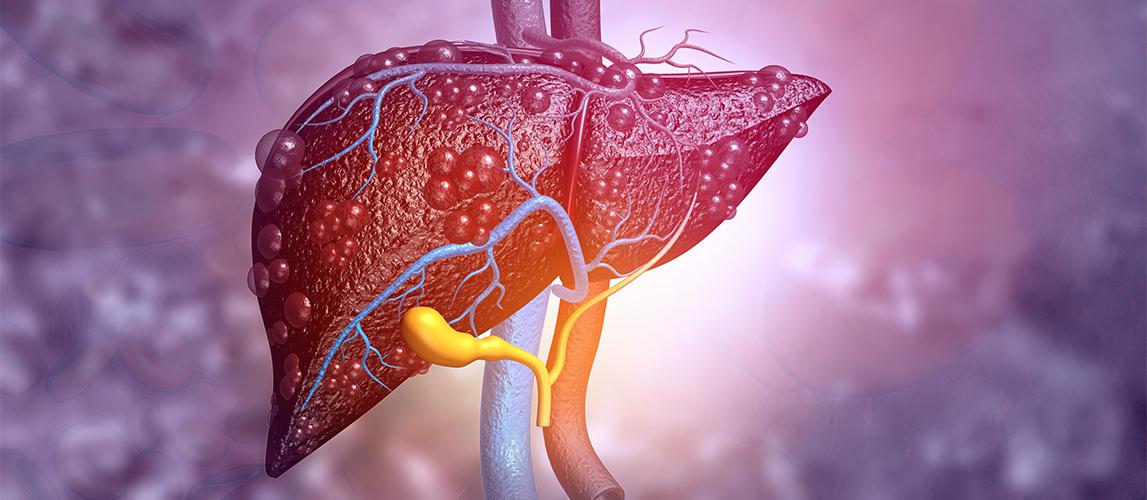N/A

We all know what happens to a city under siege. As the enemy approaches, the defenders steel themselves to fight to the last man to protect their homes. The battle is fierce, the casualties many. No matter who wins, one thing is for certain, the city itself will sustain significant damage, and perhaps even be left in ruins.
This is what happens to the liver during a hepatitis B infection. The virus — a platoon of ugly little organisms that look like lumpy soccer balls — descends on the liver’s hepatic lobules to nest inside them and multiply. Your liver’s natural defences — the heroic immune cells — leap into action, destroying the virus wherever it lurks. In many cases, your immunity prevails, but the real loser ends up being the hepatic lobule itself, which is often demolished in the fighting.
If the battle is prolonged (chronic infections are incurable and will rage within your liver for the rest of your life), then the scarring from all this destroyed liver tissue builds up and transforms this soft pink organ into a mottled, hardened wasteland, impairing its ability to filter and purify your blood stream, giving rise to cirrhosis, horrid physical conditions such as bloating and discoloration, and in many cases, cancer of the liver followed by death.
Hepatitis B in Vietnam
Unfortunately, Vietnam is a country where hepatitis B is a massive problem. Of the three hepatitis B infection rates recognized by the WHO — low (<1.5% of the population); intermediate (<7.5%); and high (7.5% and above) — the numbers for Vietnam are off the charts. Here in the relatively wealthy city area, the infection rate is somewhere between 8 and 10%; but in the poor countryside, it’s much worse; in some parts, the level hovers around 40%.
Transmission of hepatitis B usually happens differently here than it does in Western countries. Overseas, the virus is most commonly spread by sexual contact. It’s also associated with reused drug and tattoo needles, and unscreened blood transfusion (although this is now very rare). In Vietnam, as in many Asian countries, hepatitis B is an endemic condition associated with mother-to-child transmission during birth. It is also connected with hygiene-related concerns, as well as sex without protection.
The infection of babies and infants is more nefarious in many ways than it is in adults. An adult’s mature immune system responds swiftly to the contraction of hepatitis B, setting off a war that drains the body of its strength and manifests in symptoms similar to influenza or dengue. An adult is likely to overcome the infection in the end and fully recover from the disease.
When a small child or baby gets hepatitis B it’s a different story. There’s no battle; the virus simply enters the liver and sets up its occupation with minimal resistance, getting on quietly with the business of building its colony unnoticed from the outside. It’s only years later after the virus has invisibly laid waste to the entire liver, that symptoms start to manifest themselves, by which time it is often too late. In many cases, the only remaining options are limited to undergoing a liver transplant (which are not available in Vietnam) or simply waiting for the end.
Fighting Back
So how can we fight back against hepatitis B? There is a vaccine. The Engerix B vaccine enables the body to train the immune cells to produce supersoldier antibodies capable of eradicating the invaders without sacrificing the hepatic lobules. This strategy is called active immunization.
Passive immunization can be achieved where complete antibodies are delivered directly as a serum, similar to how breastfeeding mothers can pass on their own antibodies for some infections (not including hepatitis) to their babies through their milk, while their babies’ immune systems are still developing.
However, once hepatitis B progresses to the chronic phase without proper treatment, there is no going back, and the only way ahead is to try to survive this infection. In such cases, the key is to discover the presence of the disease as soon as possible. Early in the years-long struggle with your immune system on the warground of your liver, the organ will largely function as normal; it is only in the very late stages that your liver won’t work at all.
Early detection means that the condition can be managed, and this is usually where my role as a doctor comes in. While we can’t remove the virus from your body completely, we can prescribe medicines to prohibit it from replicating itself and taking up arms again. If you are a chronic sufferer of this disease, you can still live a normal, healthy life by routinely taking this type of medication.
War-torn livers ravaged by hepatitis B are a serious health issue in Vietnam. Protection is not only available, but can save lives and prevent the onset of liver cancer.
Make sure you’re up to date with your hepatitis B vaccinations and are immune to this infection, and if there is any doubt, please get tested. Late detection can be a very serious matter.
Dr. Pedro L. Trigo - Internist, Family Medical Practice Ho Chi Minh City
 本ウェブサイトでは、みなさまが快適にご利用いただけるよう、Cookieを使用しています。
本ウェブサイトでは、みなさまが快適にご利用いただけるよう、Cookieを使用しています。